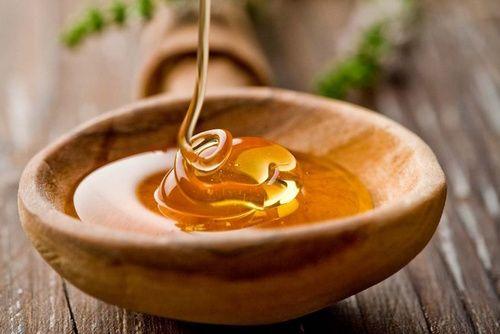Manuka honey it is obtained from a plant, the manuka in fact, originally from New Zealand and Australia. Known for its healing properties, it soothes sore throats, acts against colds and disinfects wounds. Let's find out better.
> 1. What is manuka honey
> 2. Properties and characteristics of manuka honey
> 3. How to use it

What is manuka honey
Manuka honey it is obtained from Leptospermum scparium, a shrub that grows in the territory of Australia and New Zealand. During the spring, the bees start swarming and move to the beautiful pastel pink-white inflorescences of these shrubs, feeding on the manuka nectar. In fact, the beehives are specially positioned by the beekeepers within mono cultivations of manuka, so as not to contaminate the honey with other types of flowers.
It is a precious honey, true natural antibacterial, because it has a high disinfectant capacity and able to stop the proliferation of viruses and bacteria.
This honey has, in fact, a particular molecule, the metilgliossale o methylglyoxal (MGO), a chemical compound that has a natural antibacterial action, in particular against Pseudomonas aeruginosa and Staphylococcus Aureus, which are multiresistant to normal antibiotics.
The chemical reaction glucose-oxidase also produces hydrogen peroxide (better known as hydrogen peroxide), which has a disinfectant and germicidal action. These characteristic properties make it a very appreciated honey for healing, both internally and externally.
Properties and characteristics of manuka honey
The nutrients contained in manuka honey they would therefore be unique.
This honey is considered excellent for respiratory care, especially in case of nasal congestion and is generally used in autumn and winter to counteract ailments such as cough, cold and sinusitis and to raise the immune defenses.
According to various researches, it is a honey which would also reduce the side and toxic effects of chemotherapy, causing the degeneration of cancer cells and promoting cell renewal.
This honey would also be able to increase the effectiveness of normal antibiotics, especially in reference to increasingly resistant strains of viruses and bacteria.
Diabetes, intestinal disorders and cholesterol will also be regularized thanks to the intake of manuka honey. It can also be used externally, for topical use, precisely by virtue of its disinfectant properties, containing a certain amount of hydrogen peroxide (hydrogen peroxide) and benefits the skin, useful against psoriasis, infections and inflammations, including ocular and auricular levels.
Manuka honey among the natural remedies against stomach acid: discover the others

Use of manuka honey
It is not recommended to use manuka honey in the kitchen, better to opt for a table honey, using this for therapeutic purposes, as if it were a real natural medicine. Honey has an amber color, in fact it is also called "yellow gold", it is very dense and has a particular, decisive and aromatic flavor, and thixotropic properties, ie it is able to decrease its viscosity if it is stirred.
You can take directly with the teaspoon, depending on the needs and the healing power of the honey itself, or dissolved in cold or lukewarm, not hot drinks.
Generally a teaspoon is recommended 30 minutes before meals, 3 times a day; for children aged 2 and over, the dosage ranges from 1 teaspoon to three per day, depending on the disorder, age and dosage.
Manuka honey is found on the market quite easily, both in herbalist's shops, parapharmacies, and in organic and natural products shops. It is also marketed on the internet: make sure it comes from New Zealand or at least Australia and that it has the wording "active" it means that it contains good doses of methylglyoxal, or, even better, "UMF bird honey" (Unique Manuka Factor certified), with the percentages of phenol indicated: in fact, not all manuka honeys have the same quantity and the risk of finding a counterfeit honey at home is far from low.
Il average price of manuka honey is around 30 euros for 250 grams, therefore definitely higher than other honeys.
Manuka honey among the novelties of the world of natural cosmetics
Manuka honey and reflux
Manuka honey, which one to choose
| HN


























